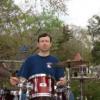
Posted
Hello everyone:
Sorry if this question has already been asked, I tried searching the forums and I came up with a lot of entries (that I'll have to read up on, later) but none that seemed to address my overall issue...
I have a project of chords on one track, the other tracks have accompaning notes (same chord notes) on separate tracks.
Like I would play a chord of C (C, E, G) on one track and on another track would have the C (bass) note play and on a third track I also have E and G notes play (melody?).
I have a project/idea here that I exported from Logic Pro, just to see how Synfire would read, transpose and save the MIDI project, when I bring the project/idea back into Logic Pro. Well, the track with the chords would disappear (!), leaving a track with one note being played at once instead of three.
My question is how do I "save" my track of chords from being removed of the two other notes, even though those other notes are being played by other tracks?
Thank you for helping me out with this! Take care, everyone!
-Carl
So., 24.02.2019 - 12:23 Permalink
When importing MIDI using Synfire, you should always have the option "keep Take" checked, so you can later in the process go back to the original data and do a Harmony analysis as well as Figure recognition from there.
A possible workflow for MIDI import into Synfire is outlined in this video on Synfire workflow for MIDI file import
The Figure symbol types relevant for chords are "vertical" (cyan), "chord" (green) and "arpeggio" (violet) as well as "bass" (pink), those symbol types relate to a scale belonging to the current chord.
I usually do chord analysis by hand from the Take data as Synfire's chord recognition always makes me pull my hair out.
Figure recognition should not be done as long as the Harmony vector isn't filled with the correct chords which Synfire needs for creating usable Figure segments from the MIDI notes in the Take vector.
Mo., 25.02.2019 - 04:31 Permalink
Synfire's Chord recognition is woefully inadequate and is the first thing that needs to be reworked in 2019. Are you listening Andre? i.e. SCALER.........
Mo., 25.02.2019 - 15:24 Permalink
Sure am I listening ;-)
If you can point out a few concrete examples where Synfire's recognition is showing weaknesses, that would be very helpful. It's probably the only way this can be addressed.
Mo., 25.02.2019 - 15:33 Permalink
I have a project/idea here that I exported from Logic Pro, just to see how Synfire would read, transpose and save the MIDI project, when I bring the project/idea back into Logic Pro
Synfire does not lend itself to editing MIDI files. Import is meant as a tool for creating your own re-usable phrases, based on which you then compose something new. It is technically impossible to render an imported file and get something that fully matches the input.
It's not unlike scanning a photo of your house, guessing a 3D model from that image, and then expecting the rendering of that model to look exactly like the photo. It will always look different (even though houses are a lot simpler than music).
Mo., 25.02.2019 - 17:44 Permalink
Synfire does not lend itself to editing MIDI files. Import is meant as a tool for creating your own re-usable phrases, based on which you then compose something new. It is technically impossible to render an imported file and get something that fully matches the input
Synfire will import the exact copy of a MIDI file if you are importing it as static pitches. The problem arises when SF must recognize chords, via the Harmonize tab, with extensions of b9 or #11 etc. Synfire simply will ignore and over-simplify them. I posted an example in another topic, doing a comparison with the recognition of the same progression in SF vs Finale. The most accurate recognition of a Scaler-like MIDI chords file is important because it allows you to work immediately on a progression generated from any other music app...
Mo., 25.02.2019 - 17:58 Permalink
There's a difference between harmonizing arbitrary input (melodies and such) vs. chord detection. The Harmonizer does the former. Am(add9) is an embellishment of Am, often in the form of a melody passing by, so the Harmonizer prefers the more general assumption. It will merely take care that (add9) is included with the suggested scale.
That doesn't say there shouldn't possibly be a special chord detection mode for the Harmonizer (took that as a feature suggestion). This mode however will require the input to be sustained and complete chords.
Mo., 25.02.2019 - 19:08 Permalink
Well, this is not a concern: in addition to Scaler there are several plugins, like Captain Chords, that export chord-only progressions... ;-)
Mo., 25.02.2019 - 19:12 Permalink
It can also happen to write progressions in Finale, or to download them from the Web...
Mo., 25.02.2019 - 22:27 Permalink
Personally, I like the harmonizer in Synfire and I rely on it a lot. Perhaps that's because if I compose a melody and import it into Synfire, it does a very good job of suggesting possible chords. I'm not sure if there's any other software that does this for monophonic material? Perhaps there is, but Scaler (for example) will just tell you the note in the melody if there is only one note.
Di., 26.02.2019 - 09:40 Permalink
I think we have to differentiate between harmonizing a melody and recognizing musical chords. As an harmonizer, SF works fairly well at a basic level. But harmonizing a melody depends on such and many historical and cultural factors that a "universal harmonizer" is impossible in itself (unless you provide it with some structural inputs: maybe a new feature in a future release of SF?). I’m just suggesting to better implement the chord recognition from a Midi file of a progression exported by Scaler, Captain, Finale etc. I’m not a geek, but I guess it should be a simple feature to be added.
Do., 28.02.2019 - 16:47 Permalink
There will be an improvement with the coming update. Synfire will recognize fully blocked-out (sustained) chords and prefer chord detection over melody harmonization in these cases. This will give you complex chords like C7(9,#11), if all its notes are sustained across the time span of the suggested chord.
This should nicely convert MIDI exports from Scaler and similar plug-ins or apps.
Do., 28.02.2019 - 22:29 Permalink
New build is online now





